★★
“Game, in only the loosest sense.”
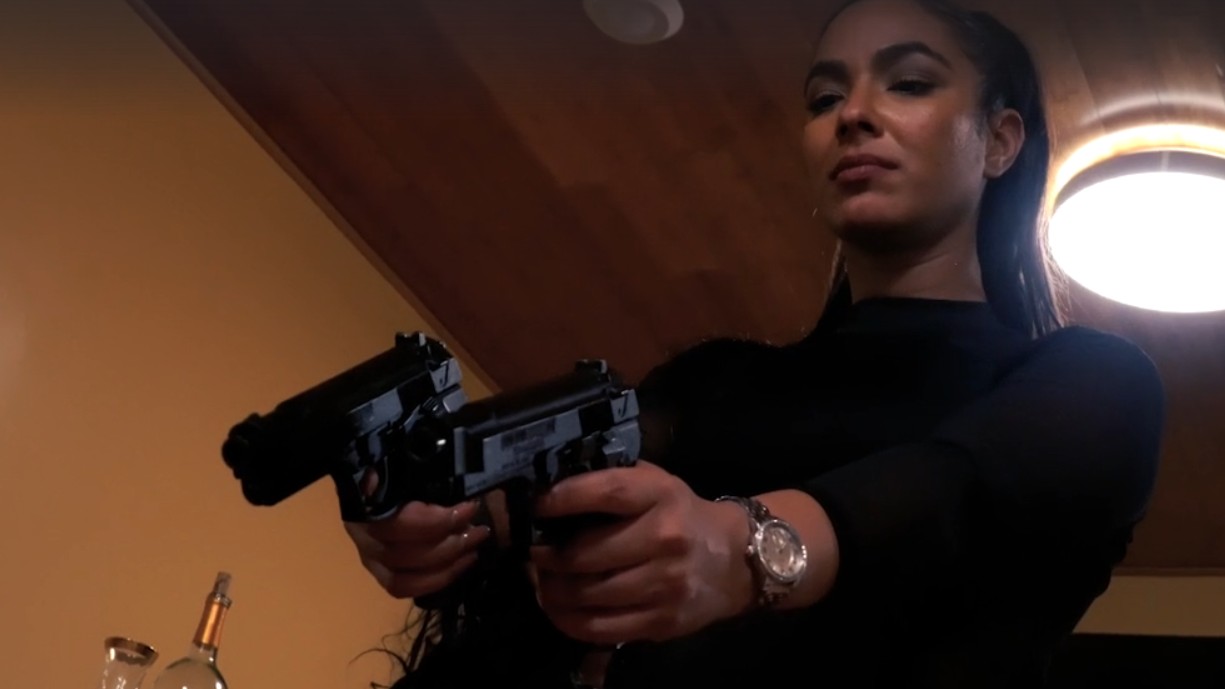 Porsha (Nunez) – and before you ask, yes, that’s how it’s spelled in the credits – is a small-time hustler, operating in the dodgier neighbourhoods of New York. When getting away from her latest escapade, she bumps into the crew of Fresh (Garcia) and his pals, who are similarly engaged, having just robbed a drug dealer. Due to flakiness on the part of one of the team, they’re looking for a new member, and Porsha successfully convinces Fresh that she is a good fit for the role. However, the rest of the gang are less convinced, and force Porsha to prove her loyalty by committing cold-blooded murder. That does her head in, and she holes up in Atlanta for a bit. Returning, she finds Fresh and her former associated have moved on, and attempts to pull off a job on her own, to get back in their graces. It doesn’t go well, shall we say, and Porsha finds herself on Rikers Island, facing a double-homicide charge.
Porsha (Nunez) – and before you ask, yes, that’s how it’s spelled in the credits – is a small-time hustler, operating in the dodgier neighbourhoods of New York. When getting away from her latest escapade, she bumps into the crew of Fresh (Garcia) and his pals, who are similarly engaged, having just robbed a drug dealer. Due to flakiness on the part of one of the team, they’re looking for a new member, and Porsha successfully convinces Fresh that she is a good fit for the role. However, the rest of the gang are less convinced, and force Porsha to prove her loyalty by committing cold-blooded murder. That does her head in, and she holes up in Atlanta for a bit. Returning, she finds Fresh and her former associated have moved on, and attempts to pull off a job on her own, to get back in their graces. It doesn’t go well, shall we say, and Porsha finds herself on Rikers Island, facing a double-homicide charge.
There are a number of concerns here, of varying levels. The biggest problem is that this is 126 minutes long, and doesn’t have anything like the content to justify such a running tine. Every other scene is unnecessary, or runs to excessive length, and this causes significant issues with pacing. The script frequently seems to forget about its own threads; for example, after one robbery, a survivor vows to take revenge on Porsha, Fresh and their associates, for their actions. This only happens at the very end, and the cinematic amnesia becomes increasingly aggravating as the movie diverts instead into another pointless shit-hop montage, or irrelevant flashback to Porsha’s childhood. Another difficulty is, the resources aren’t able to handle some of the demands of the script: it is extremely obvious that the court-room required by it, isn’t anything like the real thing. The same goes for the prison, and the film only ever reaches close to convincing, or even comfortable, when it’s operating on the streets.
On the positive side, Nunez’s performance is solid enough to work, though a lot of the cast may be better suited for supporting roles than lead ones. There were also just enough scenes that worked to keep me from hitting the off-button. In particular, the sequence where she’s made to kill, is surprisingly shocking, even in a film that clearly has no qualms about casual violence (and whose morality is about as far from “crime doesn’t pay” as could be imagined – indeed, this seems to be a world where it’s the only employment available). The problem is, the ratio of these scenes to the those which are deficient, for one or more of the reasons explained above, is about 1:10. This is apparently based on a novel, and the trailer for the book [yes, that’s apparently a thing] calls it “A hood soap opera.” I can’t argue with that – though it’s not such a positive thing, as the makers seem to think.
Dir: Deborah Cardona
Star: Katherine Nunez, Carlos Garcia, David L Holley, Joey Ortiz





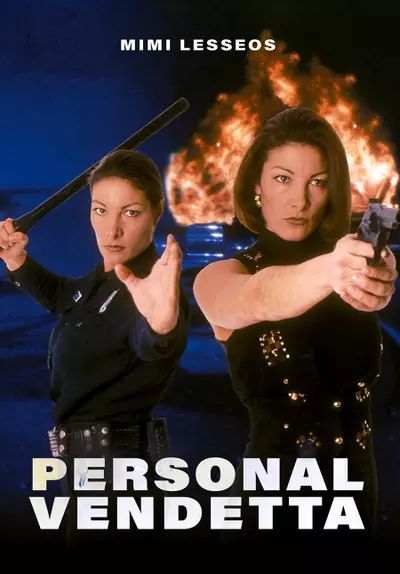 Bonnie Blackwell (Lesseos) is a battered wife, whose husband, Zach (Bottoms), eventually goes too far, putting her in hospital. He gets a spell in prison, and she decides to take control of her life and become a police officer. However, the scars of her abuse run deep, and she finds herself initially “freezing” when faced with potential threats, due to the PTSD resulting from her abusive relationship. Encouraged by colleague Bill Starr (Douglas), she eventually manages to work her way past that, just in time for Zach to be released from jail without her knowledge. She discovers that he had been running a human trafficking operation, bringing in Vietnamese mail-order brides, and sets out to take him down.
Bonnie Blackwell (Lesseos) is a battered wife, whose husband, Zach (Bottoms), eventually goes too far, putting her in hospital. He gets a spell in prison, and she decides to take control of her life and become a police officer. However, the scars of her abuse run deep, and she finds herself initially “freezing” when faced with potential threats, due to the PTSD resulting from her abusive relationship. Encouraged by colleague Bill Starr (Douglas), she eventually manages to work her way past that, just in time for Zach to be released from jail without her knowledge. She discovers that he had been running a human trafficking operation, bringing in Vietnamese mail-order brides, and sets out to take him down.
 The profession of journalist is not exactly well-regarded by many people these days. So it’s nice occasionally to be reminded that they can still potentially be action heroes, risking their own lives in pursuit of the truth. In this case, it’s Marie Colvin (Pike), a foreign correspondent for London’s Sunday Times newspaper, who lost an eye while covering the civil strife in Sri Lanka, leading to a piratical eye-patch for the rest of her career. Most people would treat that as a sign from the universe to look into a change of profession. But Colvin was made of sterner stuff, despite a hellacious case of post-traumatic stress disorder, with which she largely coped by drinking heavily. So she and photographer sidekick Paul Conroy (Dornan) continue to venture into the world’s hot-spots, whether it’s Iraq, Libya or Syria. There, they expose the terrible human cost that the conflicts have on the local population, without apparent concern for their own safety.
The profession of journalist is not exactly well-regarded by many people these days. So it’s nice occasionally to be reminded that they can still potentially be action heroes, risking their own lives in pursuit of the truth. In this case, it’s Marie Colvin (Pike), a foreign correspondent for London’s Sunday Times newspaper, who lost an eye while covering the civil strife in Sri Lanka, leading to a piratical eye-patch for the rest of her career. Most people would treat that as a sign from the universe to look into a change of profession. But Colvin was made of sterner stuff, despite a hellacious case of post-traumatic stress disorder, with which she largely coped by drinking heavily. So she and photographer sidekick Paul Conroy (Dornan) continue to venture into the world’s hot-spots, whether it’s Iraq, Libya or Syria. There, they expose the terrible human cost that the conflicts have on the local population, without apparent concern for their own safety. And there I was, thinking Maleficent: Mistress of Evil would be the prettiest picture I saw in all of 2020. There’s a new champion, and whoever assembled the look of this one should have been honoured at the Oscars. Shot in Barcelona and the Canary Islands, it beats Maleficent by almost entirely avoiding CGI, in lieu of stunning locations such as the former residence of sculptor Xavier Corberó: “a mazelike estate constructed from cement that features nine connected structures and 300 arches.” That quote comes from a
And there I was, thinking Maleficent: Mistress of Evil would be the prettiest picture I saw in all of 2020. There’s a new champion, and whoever assembled the look of this one should have been honoured at the Oscars. Shot in Barcelona and the Canary Islands, it beats Maleficent by almost entirely avoiding CGI, in lieu of stunning locations such as the former residence of sculptor Xavier Corberó: “a mazelike estate constructed from cement that features nine connected structures and 300 arches.” That quote comes from a 
 The above is the Polish for “seven”, and in the first half-hour, you’ll be forgiven for thinking that’s what you’re watching: a Polish knock-off of David Fincher’s Se7en. Homicide cop Helena Rus (Kożuchowska) is struggling to come to terms with life, after her boyfriend is killed by a drunk-driver and, for political reasons, the criminal is allowed to go free. A welcome distraction comes in the shape of a series of ritualistic murders: every day at 6 pm, a body turns up on the streets of Wroclaw. The victims have been killed in strange and unusual ways – the first, for example, is sewn inside a cow-hide, which shrinks as it dries, crushing the victim to death. Each has a word branded into their flesh, such as “Degenerate”.
The above is the Polish for “seven”, and in the first half-hour, you’ll be forgiven for thinking that’s what you’re watching: a Polish knock-off of David Fincher’s Se7en. Homicide cop Helena Rus (Kożuchowska) is struggling to come to terms with life, after her boyfriend is killed by a drunk-driver and, for political reasons, the criminal is allowed to go free. A welcome distraction comes in the shape of a series of ritualistic murders: every day at 6 pm, a body turns up on the streets of Wroclaw. The victims have been killed in strange and unusual ways – the first, for example, is sewn inside a cow-hide, which shrinks as it dries, crushing the victim to death. Each has a word branded into their flesh, such as “Degenerate”.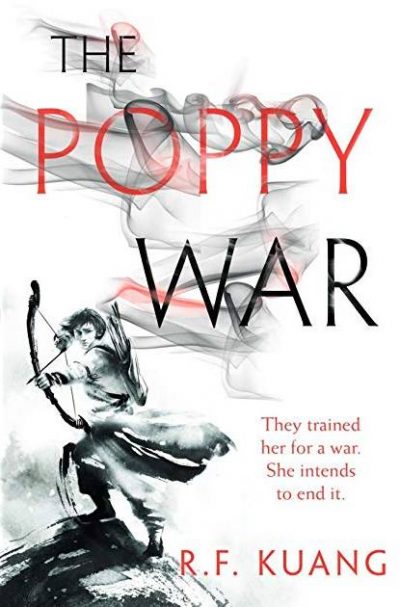 There can’t be many fantasy novels based on the events of World War II. But here we are, and Kuang has done an amazing job of taking historical events and weaving them into a saga of gods, magical powers and monsters, that works very well, even if you have no clue about the background.
There can’t be many fantasy novels based on the events of World War II. But here we are, and Kuang has done an amazing job of taking historical events and weaving them into a saga of gods, magical powers and monsters, that works very well, even if you have no clue about the background.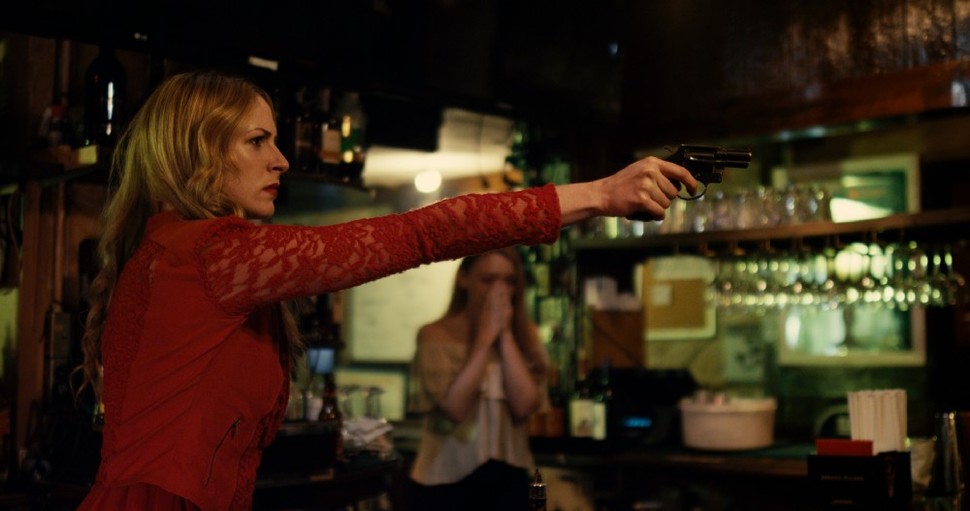
 Despite a startling cover, this isn’t as sleazy as it seems. Indeed, even the title appears to be erring on the side of restraint, having apparently avoided the more obvious (and arguably, accurate) one of Killer Pussy. While the heroine certainly has an… interesting choice of costume, that’s as far as the film wants to go. It’s an odd approach: a sleeve like that sets up certain sets of expectations, which the movie has no apparent interest in matching. It’s not as if anyone of a sensitive nature is going to have got past the cover, so it seems odd to exercise such self-discipline when it comes to the content.
Despite a startling cover, this isn’t as sleazy as it seems. Indeed, even the title appears to be erring on the side of restraint, having apparently avoided the more obvious (and arguably, accurate) one of Killer Pussy. While the heroine certainly has an… interesting choice of costume, that’s as far as the film wants to go. It’s an odd approach: a sleeve like that sets up certain sets of expectations, which the movie has no apparent interest in matching. It’s not as if anyone of a sensitive nature is going to have got past the cover, so it seems odd to exercise such self-discipline when it comes to the content.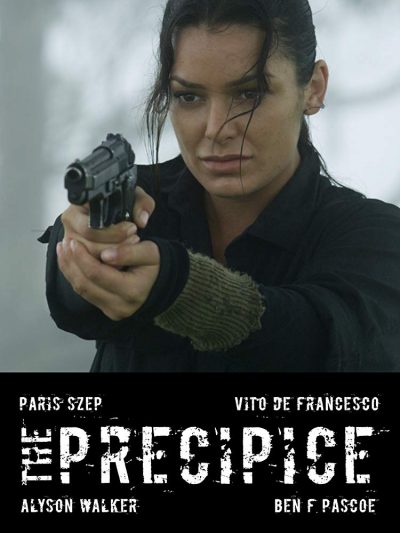 There’s nothing wrong, as such, with a film playing its hand close to its chest. However, you’ve got to give the audience enough information to keep them interested, and wanting to find out more. It’s here that this movie fails entirely, doggedly remaining so reluctant to tell you anything, I wanted to strap it down in a chair and start waterboarding. We don’t even get names for anyone involved, it’s that willfully unforthcoming. This begins in the aftermath of a shoot-out at a wind-farm, from which there are apparently only two survivors: a woman (Szep) and her captive (de Francesco). They head across the rural terrain towards a rendezvous with her allies, pursued not only by the captive’s allies, but also other interested parties.
There’s nothing wrong, as such, with a film playing its hand close to its chest. However, you’ve got to give the audience enough information to keep them interested, and wanting to find out more. It’s here that this movie fails entirely, doggedly remaining so reluctant to tell you anything, I wanted to strap it down in a chair and start waterboarding. We don’t even get names for anyone involved, it’s that willfully unforthcoming. This begins in the aftermath of a shoot-out at a wind-farm, from which there are apparently only two survivors: a woman (Szep) and her captive (de Francesco). They head across the rural terrain towards a rendezvous with her allies, pursued not only by the captive’s allies, but also other interested parties.